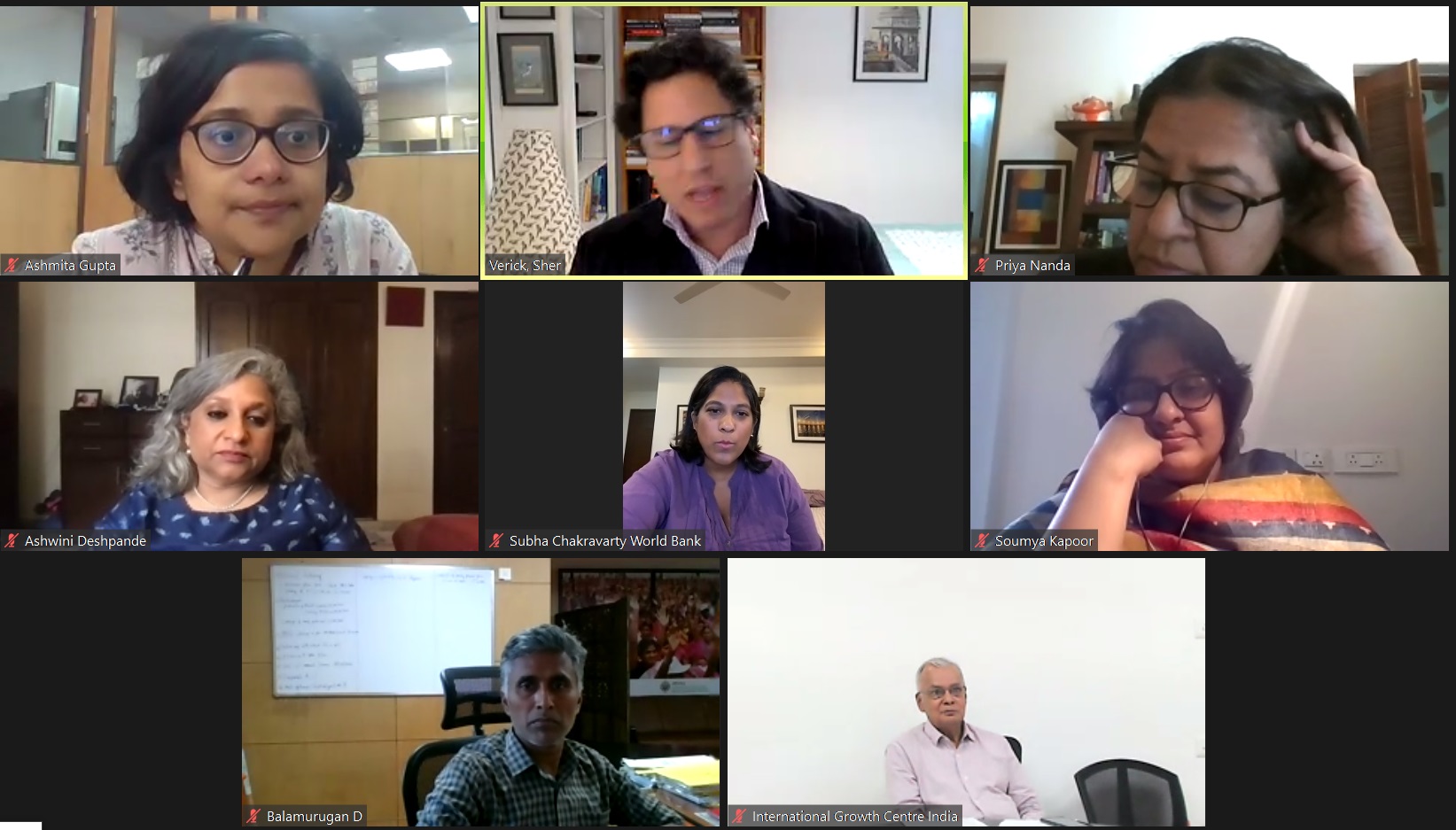Events of IGC

Description: In India women’s labour force participation stands at 20.79%, who are mostly engaged in the informal sector. A report by The Economists stated that only 7% of women in urban India have paid jobs. Existing barriers and challenges are inter-twined across work and household responsibilities and ranges across various factors such as the burden of unpaid care work, lack of job security in the informal work spaces, poor working conditions and limited social and economic upgrading along the value chain. Further, as per the Global Gender Gap Index (GGGI) 2020, India ranked 112th out of 153 countries on its performance on gender equality. During the pandemic with school shutdowns and with nearly two-thirds of India’s working women loosing their jobs in April 2020, this further exacerbates the existing gender gap. To discuss the contemporary issues around Women in the Economy, Women Development Corporation, Government of Bihar, International Growth Centre (IGC), and Asian Development Research Institute (ADRI) are organising a webinar on 12th March 2021 at 3:00 PM (IST).
Panellists: Ashmita Gupta (ADRI), Ashwini Deshpande (Ashoka University), Balamurugan D (Bihar Rural Livelihoods Promotion Society - JEEViKA), Priya Nanda (Bill and Melinda Gates Foundation), Sher Singh Verick (International Labour Organisation), Shubha Chakravarty (World Bank) and Soumya Kapoor Mehta (Initiative for What Works to Advance Women and Girls in the Economy - IWWAGE)
For Zoom Registration: Click Here
Time: Mar 12, 2021 03:00 PM in India
Patna, March 12. The International Growth Centre (IGC) and Asian Development Research Institute (ADRI) organised a webinar titled “Women in the Economy-Contemporary Issues and the Way Forward” on 12th March 2021. The panel was moderated by Priya Nanda (Bill & Melinda Gates Foundation) and event panellists were Ashmita Gupta (ADRI), Ashwini Deshpande (Ashoka University), Balamurugan D (Bihar Rural Livelihoods Promotion Society - JEEViKA), Sher Singh Verick (International Labour Organisation), Shubha Chakravarty (World Bank) and Soumya Kapoor Mehta (Initiative for What Works to Advance Women and Girls in the Economy - IWWAGE).
Ashmita Gupta stated that the women’s work is not only a gender issue but a larger economic issue where structural changes in the economy for e.g. her work on trade liberalisation shows that firms demand less women workers due to increased competition due to existing legal frameworks and other incentives which though intentionally meant to benefit women but however harms women participations. And the concern around women labour is not only a supply side issue but both demand and supply side.
Ashwini Deshpande said the measurement issue around counting women in the labour force is not a trivial issue, particularly family work carried out by women is an economic work which goes unaccounted for. She further stated that ‘care work’ carried out by women needs to be expanded to include ‘reproductive labour’ which incorporates the daily household chores carried out everyday and several times in a day.
Balamurugan D shared that their experience in Jeevika tells the story of very competent women who have assembled 2 million solar lamps, hence challenging some of the existing assumptions which states that some of the work cannot be done by women. He further shared the example of women at present dominating the position of ‘community mobilizer’ role in Jeevika which was previously carried out by only male members thus challenging the existing norms of only certain types of work that is said to be suitable for women.
Sher Singh Verick mentioned that even countries which had undergone structural changes had low participation of women and issues around gender gap persists. Hence the pattern of growth and nature of growth matters and also existing social norms are major constraints.
Shubha Chakravarty highlighted the concern that the women's choices are restricted by many social norms one of which is the expectation of marriage which restricts the entry of women into the labor force and longevity at the job.
Soumya Kapoor Mehta stated that from the demand side Gig economy offers the space and flexibility for women to work. However, it is also important to think about maternity benefits & creche facilities for the women workforce in the gig economy.
Prabhat Ghosh concluded the panel sharing his thoughts on the measurement issues to capture women’s contribution by highlighting the ‘time-use surveys’ of women where it captures women what they have done throughout the day and this gives us a much better picture of the contribution of women.